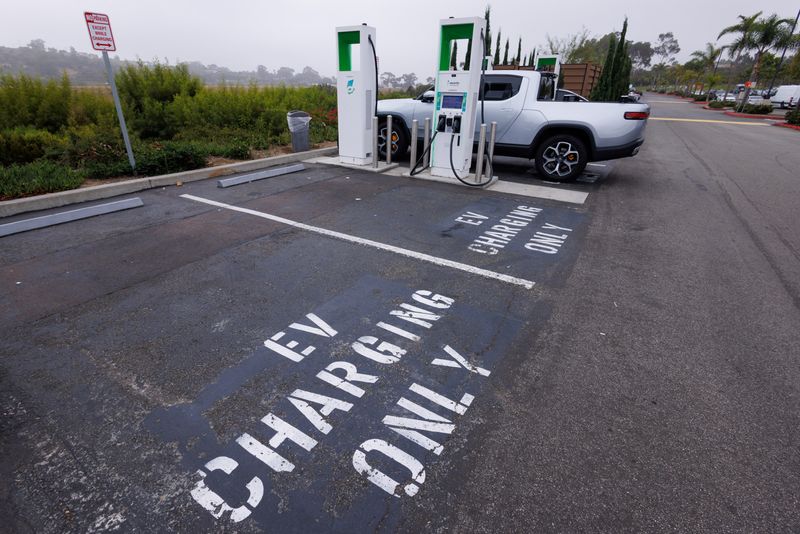Foes of California’s electric car targets take their case to US Supreme Court
2024.07.03 18:11
By Lisa Baertlein
LOS ANGELES (Reuters) – Opponents of California’s ambitious targets for electric car adoption to lower greenhouse gas emissions took their case to the U.S. Supreme Court this week, the latest salvo against the state’s campaign to fight climate change.
Energy companies, corn growers and industry associations have long opposed strong environmental rules in California, for decades the only state with power to request a waiver from the Environmental Protection Agency (EPA) to set its own vehicle emissions regulations that are more stringent than the federal standard.
The EPA made that exception because the nation’s most populous state has unique factors like geography and a large number of vehicles that make smog a worse problem than in other states.
Other states are allowed to adopt California’s stricter tailpipe emission rules, and automakers tend to follow to avoid having to produce different vehicles for different states.
In its request for hearing, filed on Tuesday, Valero Energy Corp (NYSE:)’s Diamond Alternative Energy and other plaintiffs said EPA’s grant of a waiver for California’s Advanced Clean Car program for model years 2015 through 2025 enabled the state to “operate as a quasi-federal regulator on global climate change.”
The Diamond plaintiffs rely on the Supreme Court’s 2022 ruling in West Virginia v. EPA. That decision invoked the “major questions” doctrine, which requires explicit congressional authorization before regulators can take consequential actions on issues of vast economic, political and societal impact.
California Governor Gavin Newsom wants the state to be a leader in fighting climate change and has targeted transportation because it accounts for roughly a quarter of emissions. A spokesperson for the governor was not immediately available for comment.
This request for a Supreme Court review comes as oil companies, farming groups that contribute to the production of ethanol, trucking firms and business associations also are suing in state and federal court to stop California’s rules aimed at slashing greenhouse gas emissions from boxy package delivery trucks to long-distance semi trucks.
The Clean Air Act, which EPA relies on for setting tailpipe emissions rules, does not expressly address greenhouse gas emissions from mobile sources such as cars and trucks.
Plaintiffs in Tuesday’s filing also said California does not meet the legal requirement for “compelling and extraordinary” provisions that would justify a waiver.
“Climate change is not an ‘extraordinary’ condition within California” because it is global and not local, they said. California also does not need its own emissions standards to meet global climate change since its efforts would have no discernable effect on those conditions in the state, they added.
The question of whether California may set greenhouse gas emissions for itself and other states “is undeniably major,” the plaintiffs said, especially since California has the EPA for a waiver for its plan to end sales of gasoline-only vehicles by 2035.

“The waiver and authority claimed here are the key parts of a coordinated agency strategy to convert the Nation from liquid-fuel-powered vehicles to electric vehicles,” the filing said, pointing out that would hurt demand for petroleum fuels and biofuels.
Other plaintiffs include American Fuel & Petrochemical Manufacturers, Kansas Corn Growers Association and the National Association of Convenience Stores.








